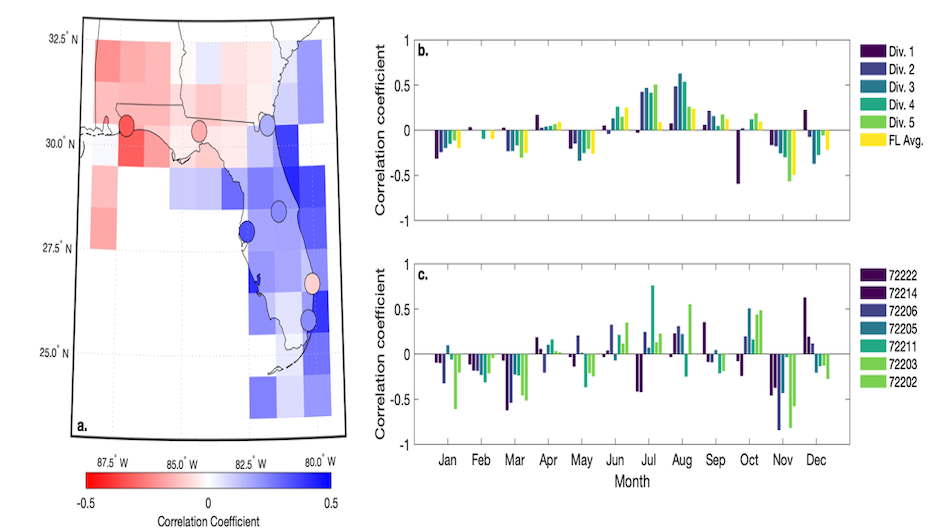MIAMI—A new study by researchers at the University of Miami (UM) Rosenstiel School of Marine and Atmospheric Science projects an increase in Florida’s late summertime rainfall with rising Atlantic Ocean temperatures.
Scientists have known for years that Florida receives more rainfall in decades when North Atlantic waters are warmer than average, but the UM research team wanted to learn more about this interaction to help communities prepare for a wetter future. This study showed that ocean temperatures are most influential on Florida precipitation in late summer, during the region’s highest high tide events.
The researchers used a suite of climate models to show that the link between ocean temperatures and rainfall only develops as a result of human influences on the climate system, such as greenhouse gas emissions and industrial pollution.
“We know that humans are continuing to make North Atlantic waters warmer, so we expect an increase in late summer rainfall in Florida in the future,” said Jeremy Klavans, a PhD student at the UM Rosenstiel School and lead author of the study.
The study, titled “Identifying the Externally‐forced Atlantic Multidecadal Variability Signal through Florida Rainfall” was published in the early online edition of the American Geophysical Union’s journal Geophysical Research Letters. The study’s coauthors include: Jeremy Klavans, Amy Clement and Lisa Murphy from the UM Rosenstiel School; and Honghai Zhang, a UM Rosenstiel School alumni currently at Columbia University’s Lamont‐Doherty Earth Observatory.
The study was funded by two National Science Foundation (NSF) grants–one from the NSF Climate and Large-Scale Dynamic program and one from the NSF Paleo Perspectives on Climate Change program.

